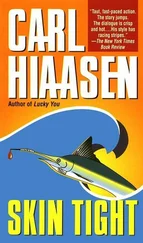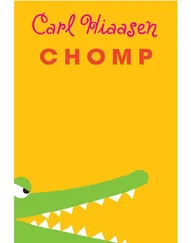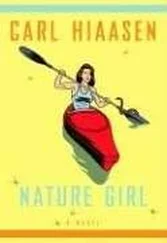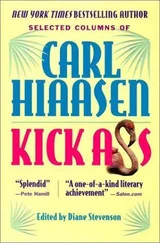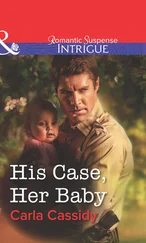Carl Hiassen - Basket Case
Здесь есть возможность читать онлайн «Carl Hiassen - Basket Case» весь текст электронной книги совершенно бесплатно (целиком полную версию без сокращений). В некоторых случаях можно слушать аудио, скачать через торрент в формате fb2 и присутствует краткое содержание. Жанр: thriller_mystery, на английском языке. Описание произведения, (предисловие) а так же отзывы посетителей доступны на портале библиотеки ЛибКат.
- Название:Basket Case
- Автор:
- Жанр:
- Год:неизвестен
- ISBN:нет данных
- Рейтинг книги:4 / 5. Голосов: 1
-
Избранное:Добавить в избранное
- Отзывы:
-
Ваша оценка:
- 80
- 1
- 2
- 3
- 4
- 5
Basket Case: краткое содержание, описание и аннотация
Предлагаем к чтению аннотацию, описание, краткое содержание или предисловие (зависит от того, что написал сам автор книги «Basket Case»). Если вы не нашли необходимую информацию о книге — напишите в комментариях, мы постараемся отыскать её.
Basket Case — читать онлайн бесплатно полную книгу (весь текст) целиком
Ниже представлен текст книги, разбитый по страницам. Система сохранения места последней прочитанной страницы, позволяет с удобством читать онлайн бесплатно книгу «Basket Case», без необходимости каждый раз заново искать на чём Вы остановились. Поставьте закладку, и сможете в любой момент перейти на страницу, на которой закончили чтение.
Интервал:
Закладка:
"He surely did."
It was just Jimmy by himself, the keyboardist had told me; Jimmy picking away on an old Gibson. No side players or singers, he'd said.
"Jack, people don't lie unless they're covering something up." Emma announces this with a world-weary somberness I find endearing.
"Doesn't mean it's a murder," I say. "Doesn't even mean it's a newspaper story." Over the whine of the electric juicer I tell her that people lie to reporters every day for all types of reasons—spite, envy, guilt, self-promotion.
"Even sport, Emma. Some people think lying is fun."
"Yes, I've known a few."
A comment like that should be stepped around as carefully as a dozing viper. I turn my attention to straining the seeds and pulp out of Emma's orange juice.
"Jack, have you ever been married?"
"Nope."
"But you've thought about it."
"Only when the moon is full."
Emma has put on her wire-rimmed reading glasses to better appraise my responses. She says, "I was married once."
"I didn't know that."
"College sweetheart. It lasted two years, two weeks, two days and two hours. And I was twenty-two at the time. Not that I believe in numerology, but it makes you wonder. What happened was so strange. One night I woke up shaky and drenched in sweat, and suddenly I knew I had to leave. So I kissed him goodbye, grabbed Debbie and took off." Debbie is her cat.
Now I'm sitting next to Emma at the table, so close that our arms are touching.
"He was a nice guy," she says. "Smart, good-looking. Great family, too. His name was Paul." She smiles. "I've got a theory. I think Paul and I peaked too soon."
"That's a good one," I say. "It's much better than 'growing apart,' which is my usual excuse. You ever miss him?"
"No, but sometimes I wish I did."
I know what she means.
"Just to feel something," she says.
"Exactly." I figure now is as good a moment as any. "What about last night?"
"You first," Emma says.
"I thought it was wonderful."
"The sex or the cuddling?"
"Both." Her directness has set me back on my heels.
Emma says, "For me, too."
"I was worried, you got so quiet."
"I was busy."
"Yes, you were. So, now what?"
"We tidy ourselves up and go to the office," she says, "and act like nothing ever happened ... "
"Gotcha," I say glumly.
" ... until next time."
Then Emma takes my face in her hands and kisses me a long time. Her lips slowly widen into a smile, and soon I'm smiling, too. By the end of this kiss we're giggling uncontrollably into each other's mouths, which leads to rambunctious entwining on the kitchen floor. I end up on my back, being scooted in ardent bursts across the cool linoleum. The sledding ends when the crown of my skull thumps the door of the refrigerator, Emma wilting against my chest. Ten minutes later, when we've caught our breath, she lifts her chin and observes that she's late for work. I'm amused to see that she's still wearing her glasses, though they teeter askew on the tip of her nose.
Scampering down the hall, she says, "Jack, I want to be clear about something. I want to make sure you're not bailing out on Jimmy Stoma."
"No way," I call after her. "I'm in this thing till the bitter end."
On the pretense of explaining I slip into the bedroom to watch her get ready. It's an operation I've always found fascinating and enigmatic. "Don't worry about me," I'm saying as Emma shimmies into her sundress, "this is what happens when I hit a wall on a big story. I start second-guessing every damn move I've made."
"You shouldn't, Jack. You've done a great job."
Emma, bless her heart, is too easily impressed. So was I at twenty-seven.
"I'm not giving up yet," I tell her. "I'm going to shake some bushes until something nasty falls out. One bush in particular."
"Speaking of Cleo—" Emma, kneeling to buckle her sandals.
"Young Evan's waiting in the newsroom," I say, "with a full report on his deli run."
"Put some clothes on and let's go."
"That's it? Slam bam?"
Emma points. "There's a slice of orange peel stuck to your butt."
Not exactly a line from a John Donne sonnet, but my spirits rocket nonetheless.
22
Good newspapers don't die easily. After three years in the bone-cold grip of Race Maggad III, the Union-Register still shows sparks of fire. This, in spite of being stripped and junk-heaped like a stolen car.
Only two types of journalists choose to stay at a paper that's being gutted by Wall Street whorehoppers. One faction is comprised of editors and reporters whose skills are so marginal that they're lucky to be employed, and they know it. Unencumbered by any sense of duty to the readers, they're pleased to forgo the pursuit of actual news in order to cut expenses and score points with the suits. These fakers are easy to pick out in a bustling city newsroom—they're at their best when arranging and attending pointless meetings, and at their skittish, indecisive worst under the heat of a looming deadline. Stylistically they strive for brevity and froth, shirking from stories that demand depth or deliberation, stories that might rattle a few cages and raise a little hell and ultimately change some poor citizen's life for the better. This breed of editors and reporters is genetically unequipped to cope with that ranting phone call from the mayor, that wrath-of-God letter from the libel lawyer or that reproachful memo from the company bean counters. These are journalists who want peace and quiet and no surprises, thank you. They want their newsroom to be as civil, smooth-humming and friendly as a bank lobby. They're thrilled when the telephones don't ring and their computers tell them they don't have e-mail. The less there is to do, the slimmer the odds of them screwing up. And, like Race Maggad III, they dream of a day when hard news is no longer allowed to interfere with putting out profitable newspapers.
The other journalists who remain at slow-strangling dailies such as the Union-Register are those too spiteful or stubborn to quit. Somehow their talent and resourcefulness continue to shine, no matter how desultory or beaten down they might appear. These are the canny, grind-it-out pros—Griffin is a good example—who give our deliquescing little journal what pluck and dash it has left. They have no corporate ambitions, and hold a crusty, subversive loyalty to the notion that newspapers exist to serve and inform, period. They couldn't tell you where the company's stock closed yesterday on the Dow Jones, because they don't care. And they dream of a day when young Race Maggad III is nabbed for insider trading or cheating the IRS or, even better, attaching a transvestite to his cock while cruising the shore of San Diego Bay in one of his classic Porsches. This vanishing species of journalist would eagerly volunteer to write that squalid story or compose its headline, then plaster it on the front page. Once upon a time they were the blood and soul of the newsroom—these prickly, disrespecting, shit-stirring bastards—and their presence was the main reason that bright kids such as Evan Richards lined up for summer internships at the Union-Register.
And five years ago most of those kids would have jumped at the chance to return here after college and join the paper at a humiliating salary, just to get in on the action. But after graduating next year, young Evan is heading straightaway to law school, his resume jazzed by a semester of working journalism once viewed as a baptism by fire, but these days regarded more as an act of exotic self-sacrifice; missionary work. Smart kids like Evan read the Wall Street Journal. They know that what's happened to the Union-Register is happening to papers all over the country, and that any Jeffersonian ideals about a free and independent press would be flogged out of their callow hides within weeks of taking the job. They know that the people who run most newspapers no longer seek out renegades and wild spirits, but rather climbers and careerists who understand the big corporate picture and appreciate its practical constraints. Kids like Evan know that most papers are no longer bold or ballsy enough to be on the cutting edge of anything, and consequently are no damn fun.
Читать дальшеИнтервал:
Закладка:
Похожие книги на «Basket Case»
Представляем Вашему вниманию похожие книги на «Basket Case» списком для выбора. Мы отобрали схожую по названию и смыслу литературу в надежде предоставить читателям больше вариантов отыскать новые, интересные, ещё непрочитанные произведения.
Обсуждение, отзывы о книге «Basket Case» и просто собственные мнения читателей. Оставьте ваши комментарии, напишите, что Вы думаете о произведении, его смысле или главных героях. Укажите что конкретно понравилось, а что нет, и почему Вы так считаете.

